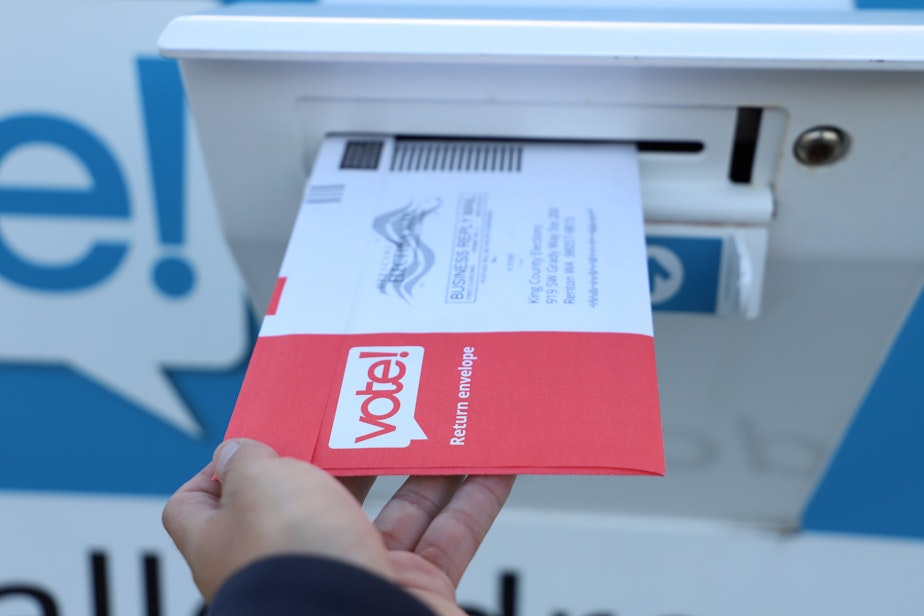Approval voting promises simplicity, but can it deliver?

Approval voting has a straightforward premise – vote for as many people as you'd like. But after that, it gets a bit more complicated.
Seattle voters will be able to decide if they want to adopt approval voting for some city elections this November. If passed by voters, approval voting will go into effect for city attorney, mayor, and city council elections.
In approval voting, people can vote for however many candidates they want on their ballots. Those votes are tallied and the candidate with the most votes wins.
Proponents of approval voting say that allowing voters to select multiple candidates lowers the probability of vote splitting, where two similar candidates compete for votes, allowing a different, perhaps less popular candidate win. Proponents also say candidates may be less likely to run negative campaigns because those candidates are vying for as many votes as possible.
Approval voting is only used in two U.S. cities: Fargo, North Dakota, and St. Louis, Missouri. It has only been used in effect in those cities for the last two years.
Fargo is a medium size city of about 120,000 people and its foray into approval voting came out of necessity. The city elects a mayor and four city commissioners. Those commissioners are elected citywide, often in packed races of 15 or more candidates. Commissioners were winning elections with less than 20% of the vote. Approval voting was proposed as a quick and easy fix for this.
Sponsored
"It wasn't like we sat down and said what's the best way of doing this," said Nick Bauroth, political science chair at North Dakota State University and Fargo resident. "We sat down and said basically – or collectively, the city – what's the easiest way of dealing with this and maybe that will make a difference."
Bauroth believes Fargo will eventually move to splitting the city into districts to elect commissioners. In the meantime, Bauroth has been watching Fargo's adoption of approval voting and says that there are still many questions city officials don't have answers to, especially about how people are using approval voting. For example, are certain demographics more likely to vote for just one candidate? What percentage of people are voting for more than one candidate? Are there trends as to what candidates' supporters use approval voting?
"If you're thinking about representation, it matters who's voting and who's not, who's using approval voting and who's not," Bauroth said.
Seattle Approves, the organization behind the approval voting proposition, was able to collect the required number of signatures to put approval voting on the ballot. The organization has received more than $200,000 from the Center for Election Science, a pro approval voting nonprofit, and $135,000 from the founder of the cryptocurrency exchange, FTX, Sam Bankman-Fried.
Along with approval voting, Seattle voters will also be able to vote for ranked-choice voting (RCV) this November. The Seattle City Council voted to add ranked choice to the ballot in July. Council member Andrew Lewis sponsored the move.
Sponsored
"I'm bringing this proposal forward today to give voters the choice to choose the election reform that is more broadly adopted across the United States," Lewis said.
Members of Seattle Approves say the city council is interfering with the initiative process by adding ranked-choice voting to the ballot.
A previous version of this article incorrectly stated that the organization backing the approval voting initiative is Approve Seattle; the organization is actually called Seattle Approves. This story was updated on Tuesday, Aug. 30, 2022 at 2:54 p.m.
Want to know more about the voting records and issue positions of candidates? Use the VoteSmart tool below to find out more.





